A diverse template to help students craft inquiry questions to produce different types of research projects.
Inquiry-based learning is a method that focuses on student discovery rather than the student being a passive learner in the classroom. They are allowed to be in control of their own learning by asking questions over specific topics and then finding answers to those questions through research and learning activities. Inquiry-based learning is also a great way to incorporate 21st-century critical-thinking skills in the classroom.
This teaching resource is a fantastic template that can be used in a variety of ways. It can be incorporated into any class unit, or it can be a useful tool for a negotiated, flipped learning style to empower students to determine what they would like to learn. Digital Citizenship and Inquiry and Research can be difficult skills for students to maintain. This template gives students a place to document their research information and ensure they keep away from easy downfalls such as plagiarism and distracting resource types that do not contribute to their final presentation.
You can use all pages of this template, or pick and choose the ones that are relevant for your classroom needs.
These pages include assistance with:
- home learning
- success criteria
- investigation purpose
- parent interaction
- project choices
- presentation types
- locating and integrating personal interests
- community involvement
- Genius Hour references
- previous knowledge and understanding
- question promoting
- research organization
- primary and secondary resource use
- presentation planning
- drafting templates
- good referencing practice
- digital citizenship
- research hints and tips
- project tracking calendar
- reflection exit sheet.
Use the drop-down menu to choose between the PDF, editable Word, or Google Slide Deck version.
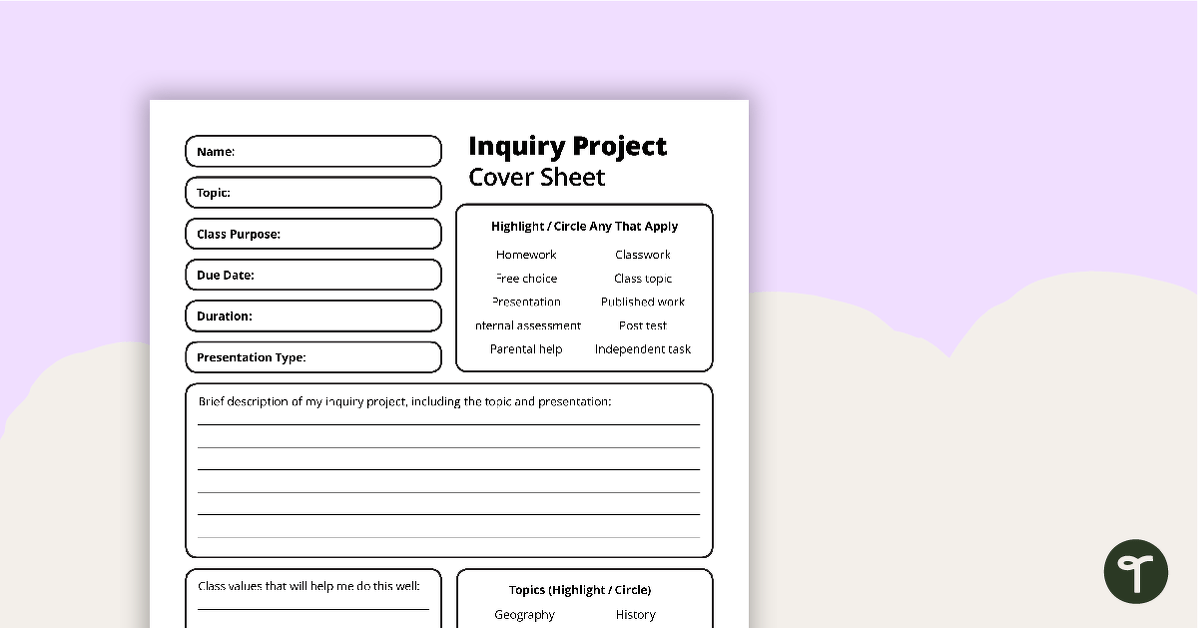
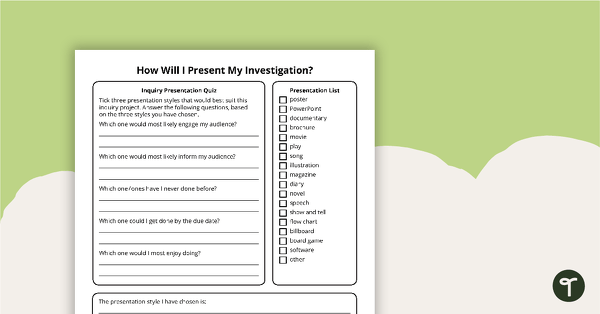
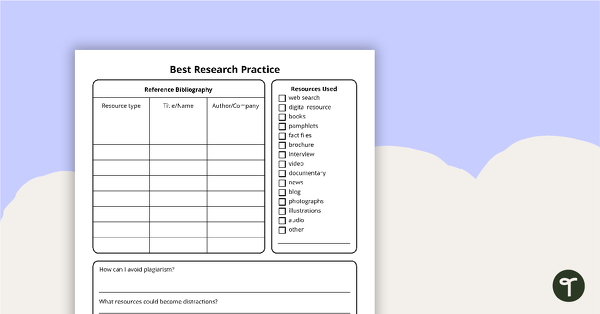
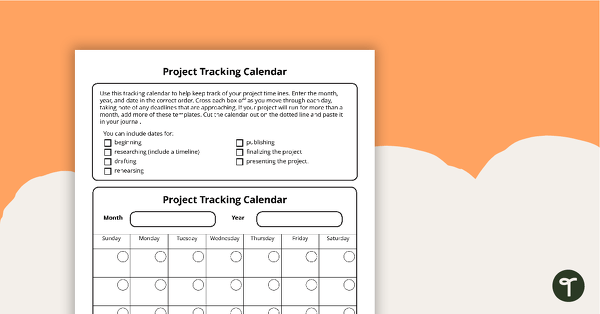

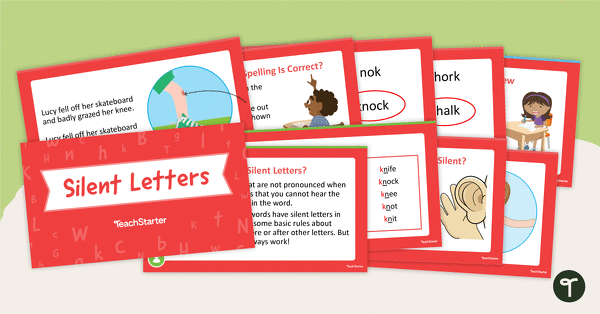
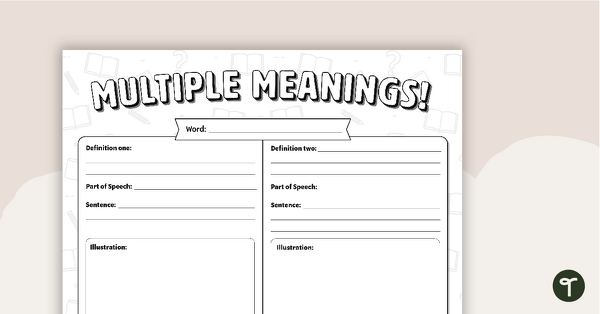
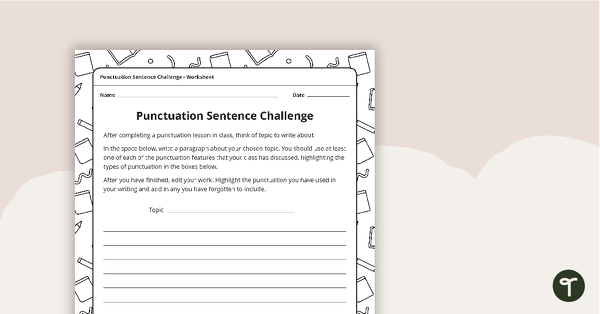
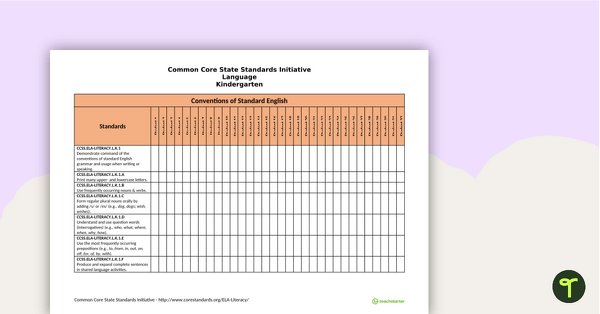
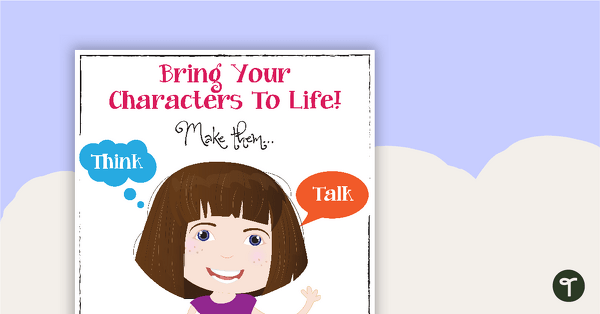
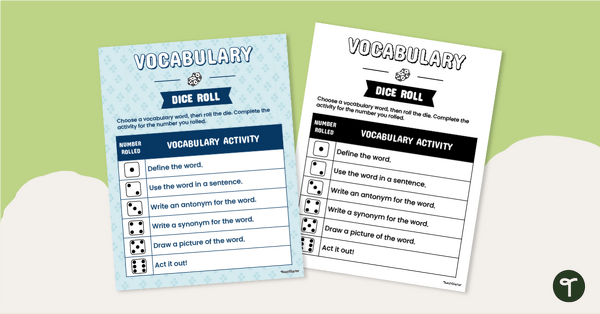
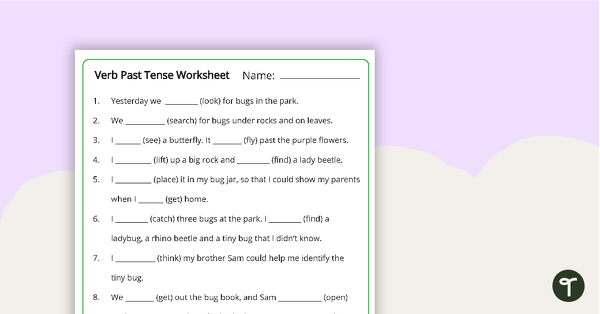
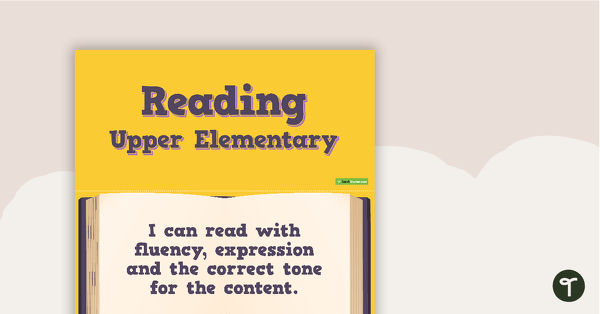
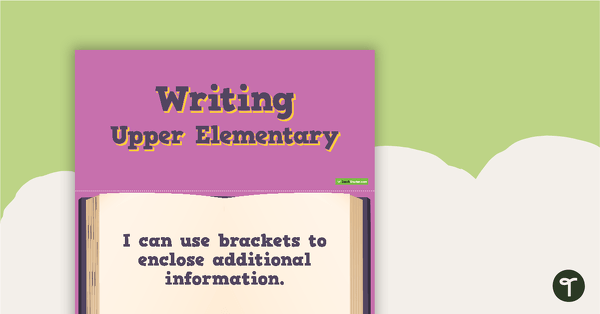
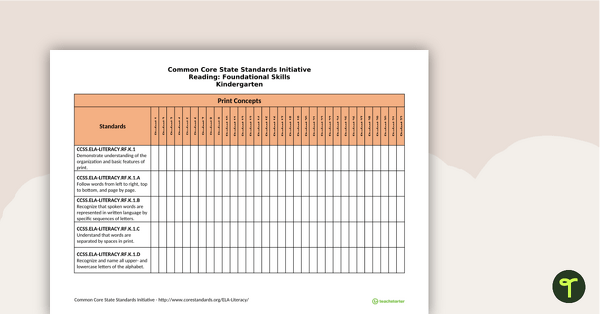
0 Comments
Write a review to help other teachers and parents like yourself. If you'd like to request a change to this resource, or report an error, select the corresponding tab above.